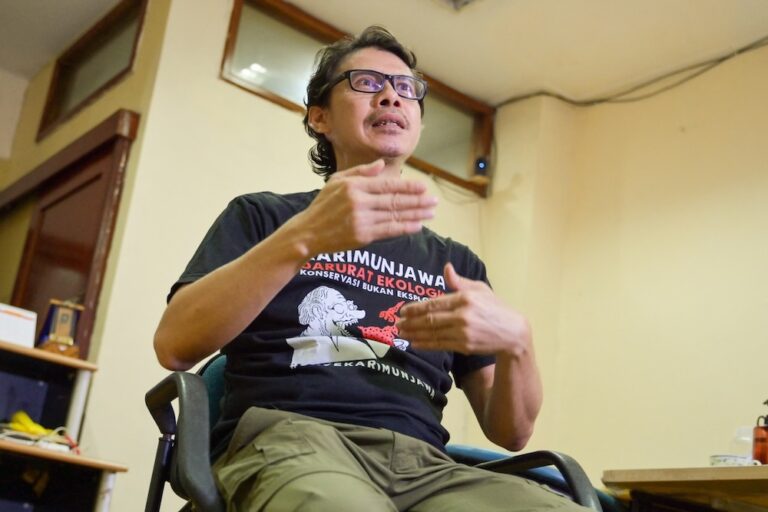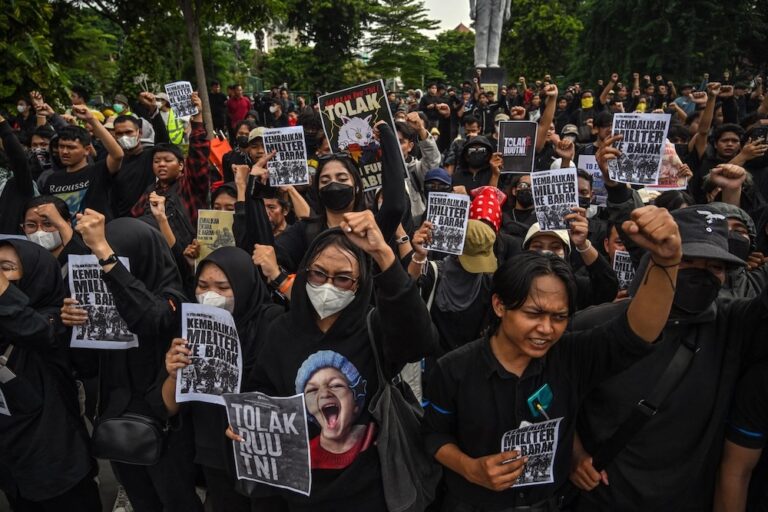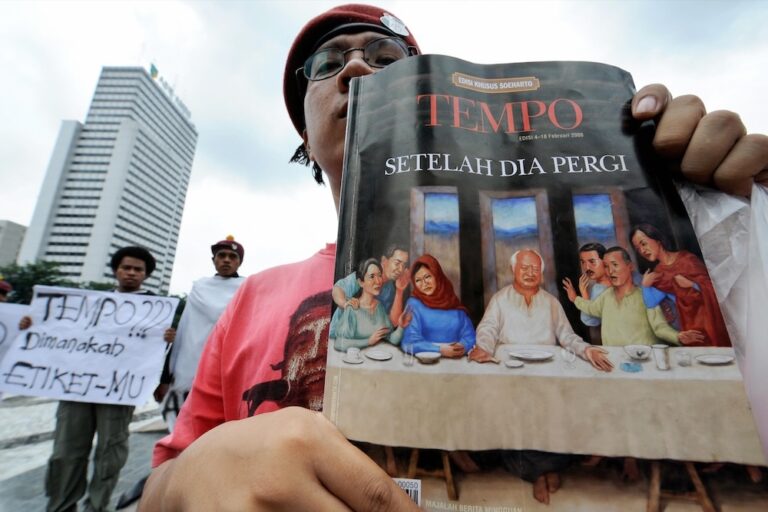(ISAI/IFEX) – Indonesian Foreign Minister Ali Alatas said in Jakarta on 17 November 1997 that his government would take action against any Indonesians seen protesting against President Suharto during the Asia Pacific Economic Cooperation (APEC) summit in Vancouver, Canada, which took place on 24 to 25 November. “If they are Indonesian nationals, yes, we will […]
(ISAI/IFEX) – Indonesian Foreign Minister Ali Alatas said in
Jakarta on 17 November 1997 that his government would take action
against any Indonesians seen protesting against President Suharto
during the Asia Pacific Economic Cooperation (APEC) summit in
Vancouver, Canada, which took place on 24 to 25 November.
“If they are Indonesian nationals, yes, we will take measures
against them,” said Alatas.
His remark was apparently made to warn Indonesians not to get
involved in planned protests, which later went ahead, often
singling out Suharto as well as Chinese President Jiang Zemin.
Alatas said the Canadian government had earlier guaranteed the
safety of his delegation. “We hope the demonstration will not be
uncontrollable like what happened in Dresden, Germany, in which
our head of state was directly and physically threatened,” said
Alatas.
During Suharto’s visit to Dresden in April 1995, protesters
staged demonstrations and booed him over Indonesia’s human rights
record including the killings in the internationally-disputed
territory of East Timor.
“This clearly shows the arrogance of power which was harshly
shown in public,” said Indonesian feminist activist Taty
Krisnawati in an impromptu press conference held at the People’s
Summit media centre on 20 November.
Indonesian dissident George Aditjondro, who accompanied Taty at
the packed press conference, also said that the Indonesian
government had obviously meant to harass its citizens who wanted
to express disagreement with their government during the People’s
Summit, which preceded the APEC Summit.
The People’s Summit was a gathering of NGOs, unions, academics
and journalists who met to discuss labour issues, human rights
and other matters relating to APEC members economies.
A number of Indonesians joined protests and participated in the
People’s Summit, in spite of the threat made by Alatas.
Some government-controlled Indonesian media reported negatively
that the People’s Summit was a gathering of radicals.
“I have to thank Alatas for making such good public relations for
the Indonesian pro-democracy movement,” joked Aditjondro, a
leading Indonesian scholar who currently lives in self-exile in
Australia.
Meanwhile, on 25 November, Canadian police arrested two
Indonesian security officers for spying on participants at an
anti-APEC protest at the University of British Columbia (UBC),
where APEC leaders met.


